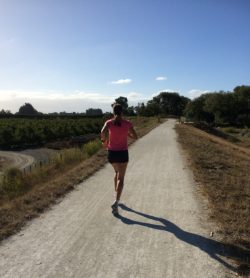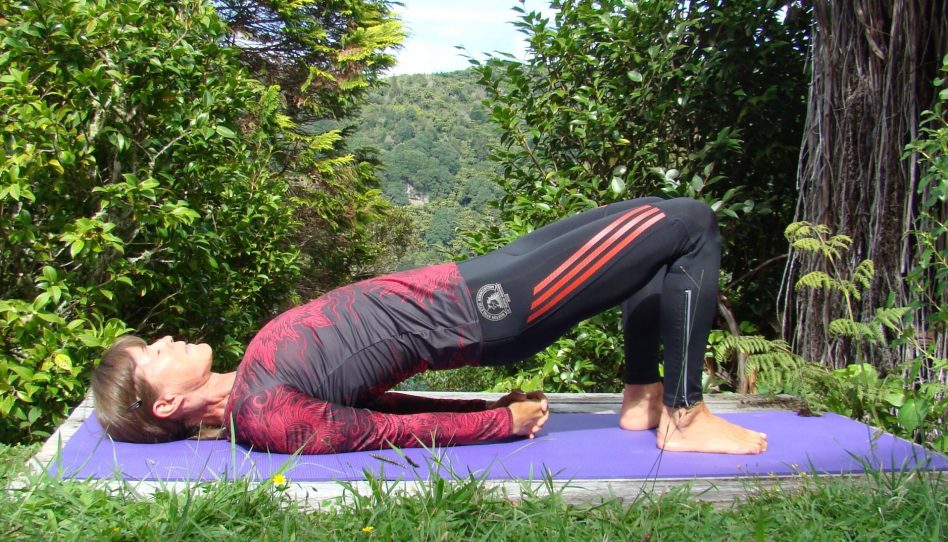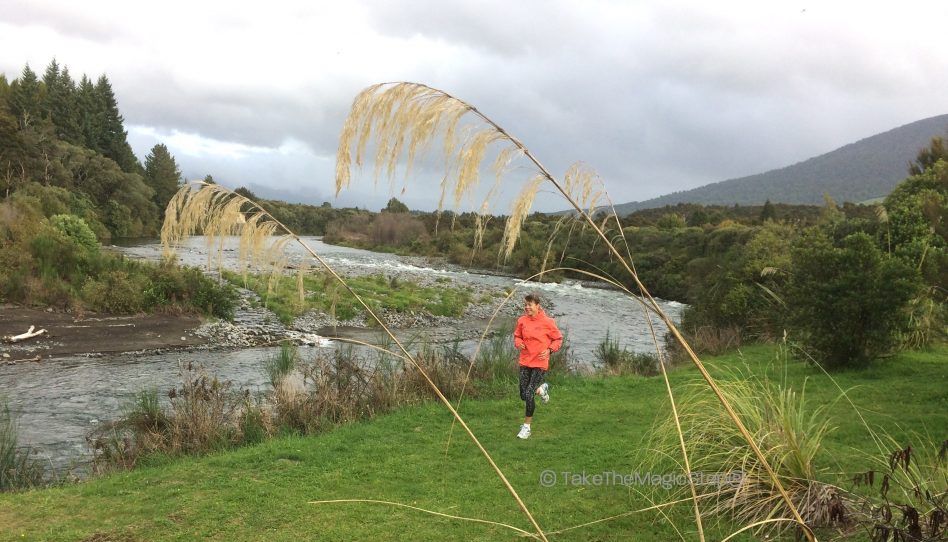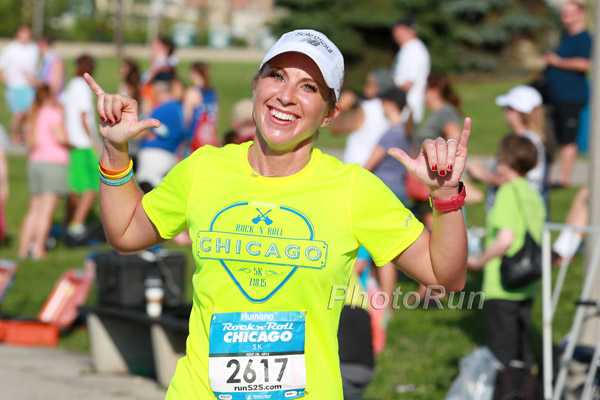The Best Ways to Recover after a Marathon
Uta’s tip: Even if you already feel less tired and almost recovered after the marathon—keep your post-race mileage low.
Your Marathon is Over. What Now?
Let your legs dangle and your muscles rest. Take time to really recover—mentally and physically from running a marathon. Don’t those words sound like music in your ears? The marathon is just behind you. Everything is done. But the intensity of the race and the weeks of hard preparation live on in your body and in your mind.
Beating the Post-Marathon Blues

Many endurance athletes and runners feel a sense of freedom afterwards, even if they are not entirely satisfied with their race result. Sometimes, however, they feel emptiness as well—the “Marathon Blues.” You have focused over a long period of time on that One Day. Your life was often ruled by the preparation for those few hours of running.
How does it feel? Are you suddenly gripped by a sense of physical inactivity and aimlessness? What do you need to fill in the missing part of your life? Or do you question whether you even need to do anything? What’s next? All these questions are quite justified.
What hopefully follows your marathon achievement is a time of rest and relaxation, active regeneration, cross-training and fun-oriented running. There is no hurry to aim for a new goal. The cards will be dealt anew. It will be a while until the next running event.
Please, read the following also: Yoga for the Right Balance.
Recovering after the Marathon Needs Time
As a former elite athlete and current recreational runner, I understand how much time you need to recover completely from marathon preparation and the race itself. The extent of the individual physical and mental effort during the last three months of training decides the amount of time you need to truly recover.
The higher the maximum effort, with the entire preparation focused towards this one running event, the more recovery you need. In my experience, a four to six-week regeneration phase is ideal for the best recovery after the run.
Back to Running

As is often the case in other areas of our lives, reason should come first. For runners, the conscious decision to relax and let your legs dangle is important and promotes total recovery. One should not have the feeling of missing something, but should enjoy these days to the fullest.
The more you identify with this situation, the faster and more profound the regeneration process will be. How much you actually train in the meantime is primarily determined by your feeling—by the signals you get from your body. Use this time of relaxation in such a way that you can start your next training or race preparation fully energized, enthusiastic, healthy, and injury free.
Maybe, after a few days, you no longer are feeling tired and tense. But don’t think that your fitness level has fully recovered. Keep your running mileage low—high mileage now will not allow you to recover fully. Right now, it is simply about getting that relaxed running feeling back, and achieving effortlessness and a good running rhythm.
Combine Marathon Recovery with other Sports
Your highest priority is recovery. It is advisable to combine running with other activities, such as swimming, water-running or cycling. The best―and my favorite―is cross-country skiing. It gives you a wonderful total body workout.
Staying active ensures the continuous blood circulation of our entire body and thereby contributes to a faster recovery. Stay away from monotonous training and running for a while – try something new. With the different but appropriate movements that other sports provide, your joints, tendons and ligaments can recover. This includes, if possible, running on soft surfaces.
Fartlek Training is Appropriate for Marathon Runners
Even if you feel fully energized again after two or three weeks, do not push yourself too hard. Often jogging is no problem, but keep your runs short with only low to moderate intensity. As you gradually return to normal running, you can introduce smaller quality additions, such as strides after your runs or easy fartleks, rather than thinking about long runs too early.
Running and Sports into Old Age—The Principle of Periodization

Soon you will be able to run fast again with a relaxed, fluid rhythm. Try strides—they are fun, not too intense and will help you to regain speed, which probably was neglected during marathon training. A bit later, assuming your body feels really good, include a little fartlek, run short distances, just playing, as well as distance runs at moderate speed.
Four to five weeks after the race, if you are making good progress and getting rid of tense muscles and fatigue, you can go back on longer runs, more challenging fartleks with longer distances and other intense training elements like interval training.
The principle of periodization means cycles of easy and heavy training throughout the year. This will help you to keep enjoying the sport you love into your senior years. You can also use the recovery time to enhance future race preparations. Use this recovery period to work on weak points, refine your running style or completely heal small injuries. Or get more into Yoga, stretching and weights to stabilize the body.
Sleep and Healthy Post-Marathon Nutrition

And the best recovery tool? You probably heard that from me before: Sleep—the best friend of the immune system. Good quality sleep makes for a quicker recovery and gets you back on track in the shortest possible time. Especially if you combine it with a healthy diet that consists of vegetables, lots of fresh fruits, legumes, oats and potatoes, high quality protein and healthy fats like nuts, seeds, avocado, olive oil and fatty fish. Right now, you need fewer calories than during your marathon training, so limit starchy products.
Going on vacation after a long distance event, treating yourself with massages, sauna, easy walks… even a ski holiday? Sounds too good to be true? Find your individual recovery mode, be good to yourself and your body. Imagine what happens when you show up with your marathon medal at the office and announce with great passion: Next year, I’m running the Boston Marathon! And everything starts all over again…
Yours,

Adapted from my column „So erholen Sie sich nach einem Marathon-Lauf richtig“ in “DIE WELT” with permission.
*Uta Pippig, 52, is one of the most successful female marathon runners of the ’90s, a three-time champion of the marathons in Boston and Berlin and winner of the NYC Marathon. She is currently a writer and public speaker for “Take The Magic Step®” and “Running to Freedom™” and is also a columnist for the German daily newspaper “DIE WELT.”
Uta lives in Berlin, Germany, and in Boulder, Colorado, and with her organization “Take The Magic Step®” she commits herself to increasing people’s awareness in the areas of fitness, nutrition and health.
Reading Suggestions:
- Periods of Training for Your Marathon Preparation and Distance Progression for Your Long Runs
- General Guidelines for Your Marathon Preparation—Enjoy Your Training
- Hands-on Help: The Benefits of Sports Massage
- Posted November 9, 2017
© Copyright 2017-2025 Uta Pippig and Take The Magic Step®. All Rights Reserved.
More Insights

Uta’s Favorite Exercises to Improve Your Fitness and Running Technique
Uta Pippig has designed an at-home fitness program which only uses your own body weight, steps, and a Theraband. They are eight exercises that Uta often does herself.
Uta’s Yoga and Stabilization Guide for a Better Running Technique
Runners, especially, can benefit from a well-balanced yoga and stabilization program. Uta suggests effective combinations of poses and exercises that have helped her gain the flexibility and balance that can lead to a better running technique for everyone.
How a Clever Mental Focus Can Get You Through Running Injuries
Running injuries can be devastating, but learning to focus mentally can speed up the healing process. Uta explains how the forced break from running can actually provide future benefits.